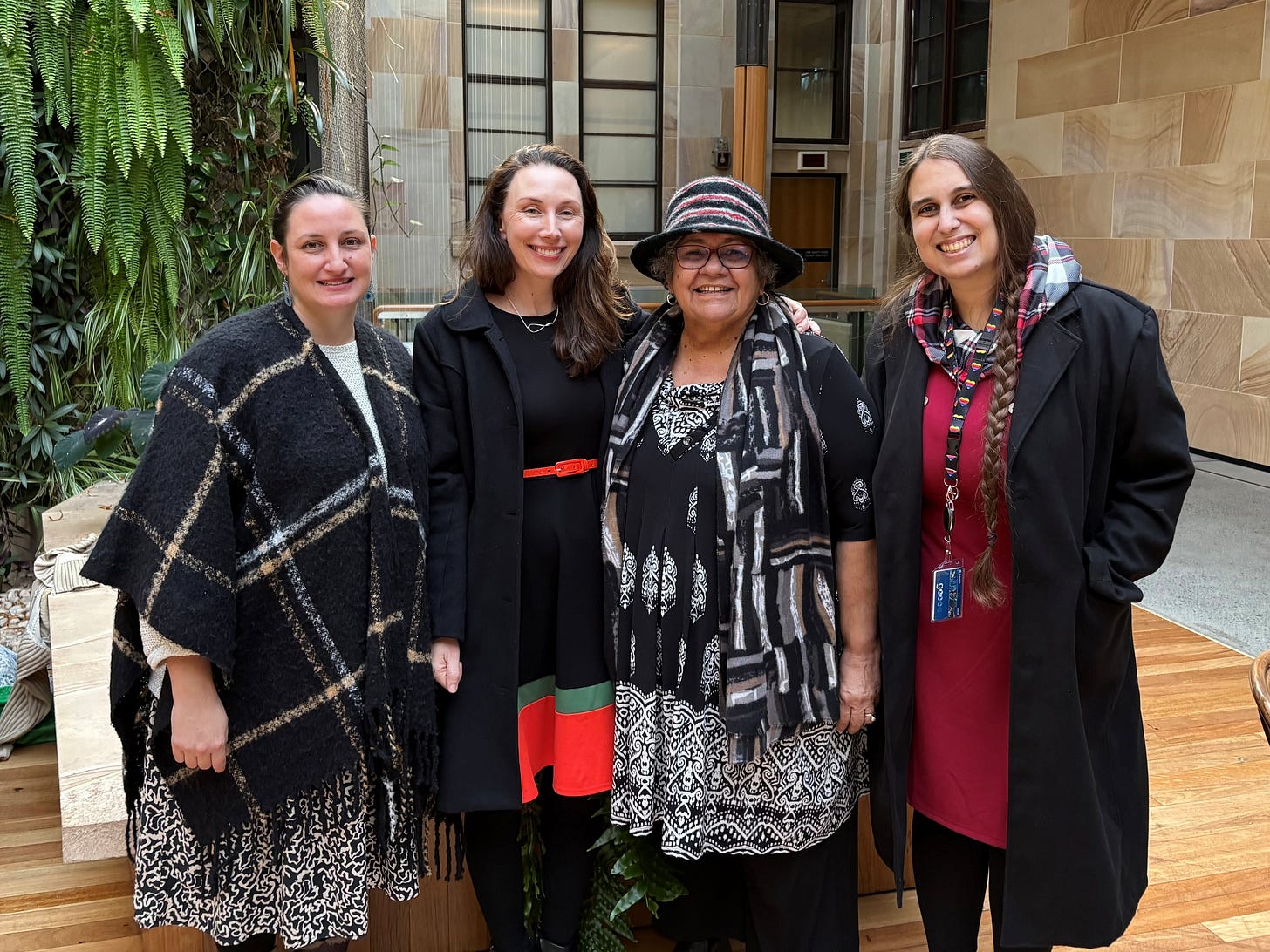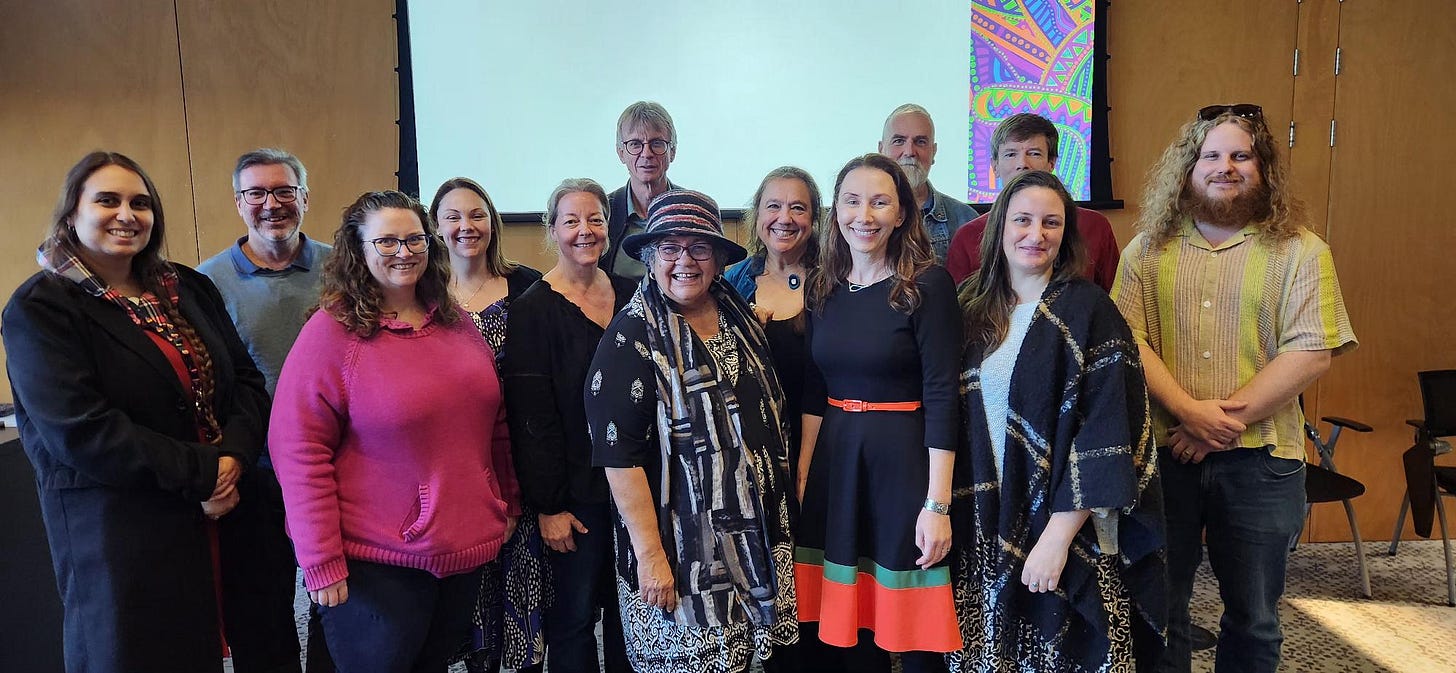Empowering educators, engaging learners: The journey to Indigenise curriculum
Tracey Bunda and Katelyn Barney, The University of Queensland
There is a national imperative to Indigenise the university curriculum. The Universities Australia Indigenous Strategy acknowledges the inherent value of Aboriginal and Torres Strait Islander peoples’ unique knowledge systems. At the University of Queensland (UQ), where we are both employed, the importance of Indigenising the curriculum was identified as an objective of the Stretch Reconciliation Action Plan.
Indigenising the curriculum allows Indigenous students to see themselves in the curriculum. This creates a sense of belonging and connection with the university for Indigenous students. As part of a project funded by ACSES that we worked on together, led by our colleague Professor Bronwyn Fredericks, we interviewed Indigenous graduates. Many of the graduates interviewed highlighted the lack of Indigenous perspectives included in the curriculum of their courses/subjects:
Culturally I’d say that I wish that Indigenous knowledge had been a little bit more present in some of my studies, I guess, that it was more a part of the university culture. (Bachelor of Arts graduate)
The notion that content that involves the human experience or involves discussion of history and culture doesn’t necessarily speak to an Indigenous world view or account for the Australian Indigenous knowledge systems and experience and history and that in and of itself can be a problematic space to exist within. (Bachelor of Arts graduate)
Like all courses that are, or degrees that aren’t set up to include us I guess? Like we've always gotta bend them backwards for that course, but that course won’t even bend slightly for us? … that can get a bit, bit draining for mob. (Bachelor of Behavioural Sciences graduate)
Indigenising the curriculum also benefits all students because it enhances understandings of Aboriginal and Torres Strait Islander ways of knowing – in science, history, health, the environment, law, the arts. It enriches students’ learning experiences and teaches non-Indigenous students how to transform their future relationships with Indigenous peoples. Non-Indigenous students learn the value of Indigenous histories, cultures and societies and, importantly, learn of their relationship to colonisation in Australia.
We are currently co-leading a UQ-funded Teaching Innovation grant on Indigenising absences in the curriculum. Over 2024-2025, we have worked with six courses/subjects across the disciplines of music, veterinary science, engineering, geography, biomedical science and general science. Through a series of workshops and meetings with staff, we have collaborated with non-Indigenous staff to begin to Indigenise their curriculum – including implementing new learning objectives, learning activities and assessment.
What has worked?
One of the strengths of the project has been the strong collaboration between Indigenous and non-Indigenous staff. The project team has included an Indigenous reference group (Prof Thelma Parker, Dr Coen Hird, Carroll Go-Sam, Deline Briscoe, Dr Cam Raw), an Indigenous research assistant (Dr Allanah Hunt), an Indigenous learning designer (Emily McConochie), and an Indigenous evaluator (Prof Maria Raciti). Non-Indigenous staff within the project have found the process of discussing their courses with the reference group, and the learning designer, particularly helpful.
Emily McConochie (learning designer), Katelyn, Tracey and Dr Allanah Hunt (research assistant)
What are the challenges?
Many of the non-Indigenous staff involved in the project have reported they are worried about getting it ‘wrong’. At a symposium as part of the project, staff also discussed the issues of convincing a small, but resistant, number of students about the value and purpose of embedding Indigenous perspectives in their course, and addressing issues of Indigenous Cultural and Intellectual Property (ICIP) within their teaching. Some of these challenges are also documented elsewhere by others (e.g., Howlett et al., 2013; Nakata, 2007; Hollingsworth, 2016). Our next steps are undertaking interviews with staff and with students to explore further their perspectives on the challenges and benefits of Indigenising the curriculum.
Some members of the project team at the symposium held as part of the project, June 2025
A new Handbook on Indigenising the curriculum
As part of our work together, we have also co-edited Indigenising curriculum at the University of Queensland: A handbook with two other colleagues A/Prof Levon Blue and Dr Laura Deane. The open access Handbook provides a practical resource to support others wanting to start the journey of Indigenising their curriculum. In developing the Handbook, we asked contributors to include tips for readers. For example:
Carroll Go-Sam and Kelly Greenop from the School of Architecture, Design and Planning at UQ wrote:
For novices engaged in Indigenising curriculum, ensure you start from a position of curiosity yourself, as a co-learner. Start with one or two new items and build content over time.
Des Crump and Samantha Disbray from the School of Languages and Cultures at UQ wrote:
Non-Indigenous staff need elevated levels of cultural competency to support and amplify Indigenous community members and staff. This allows a group to work together to develop the processes and protocols to guide the journey ahead, as they build the foundations for shared expectations, trust and genuine joint decision-making.
The Handbook builds on other work we have undertaken together, including a podcast series on Indigenising the curriculum. Certainly, important work has occurred across the sector to Indigenise the curriculum, yet there is still much that remains to be achieved in this space.
Professor Tracey Bunda is a Ngugi/Wakka Wakka woman and grew up on the lands of the Jagera/Jugera/Yuggerapul peoples. She is Professor of Indigenous Education at the University of Queensland, was recently awarded the 2024 Australian Award for University Teaching (AAUT) Career Achievement Award and is the 2025 STARS Fellow.
Associate Professor Katelyn Barney is a non-Indigenous teaching and research academic and strong long-term relationships and partnerships with Indigenous people is at the centre of her work. She is based within the Aboriginal and Torres Strait Islander Studies Unit and affiliated with the School of Music at the University of Queensland.
Together they co-host a podcast series on teaching called Indigenising Curriculum in Practice.


